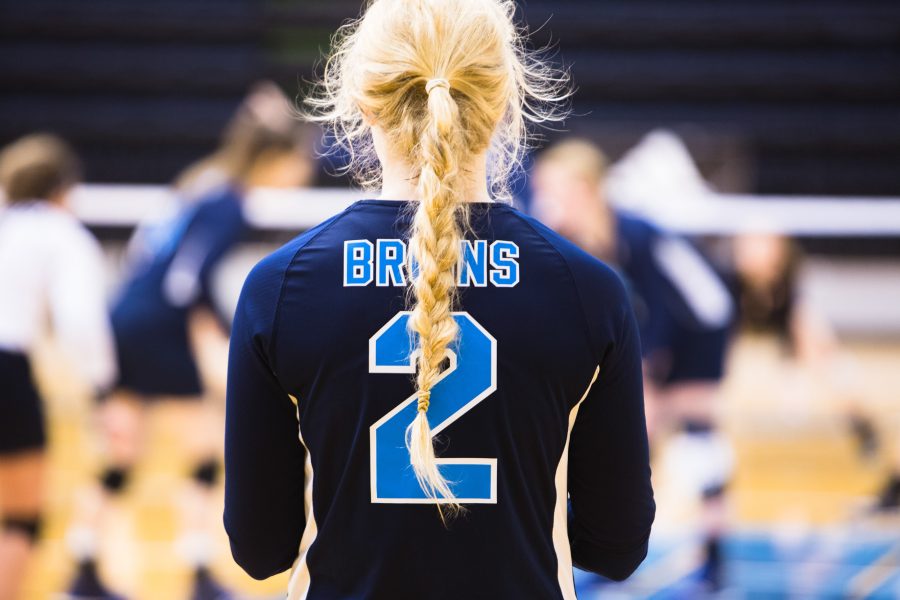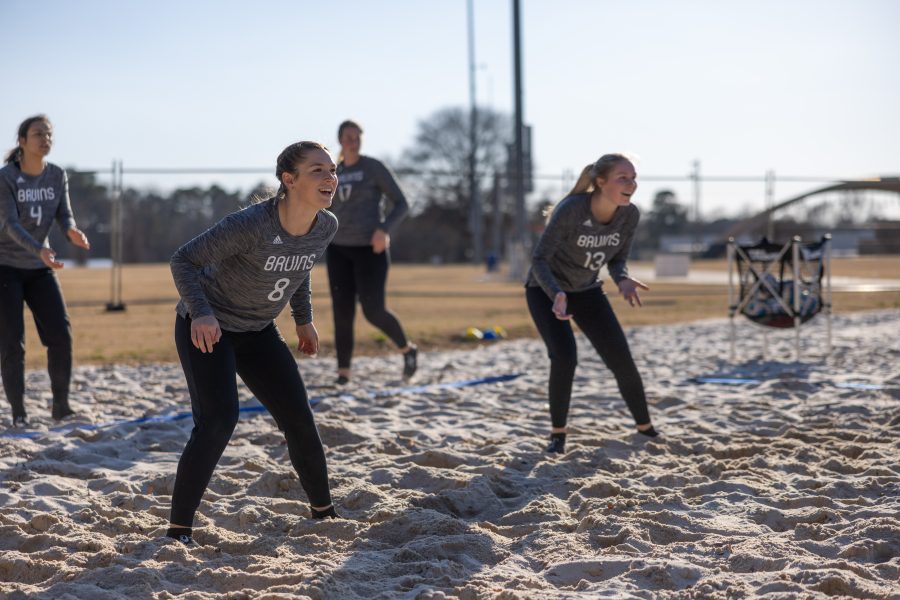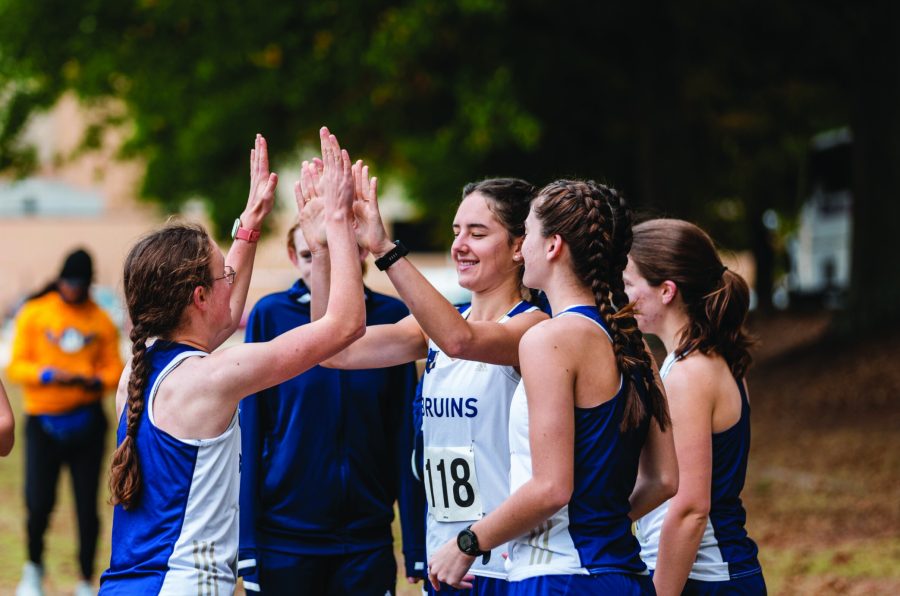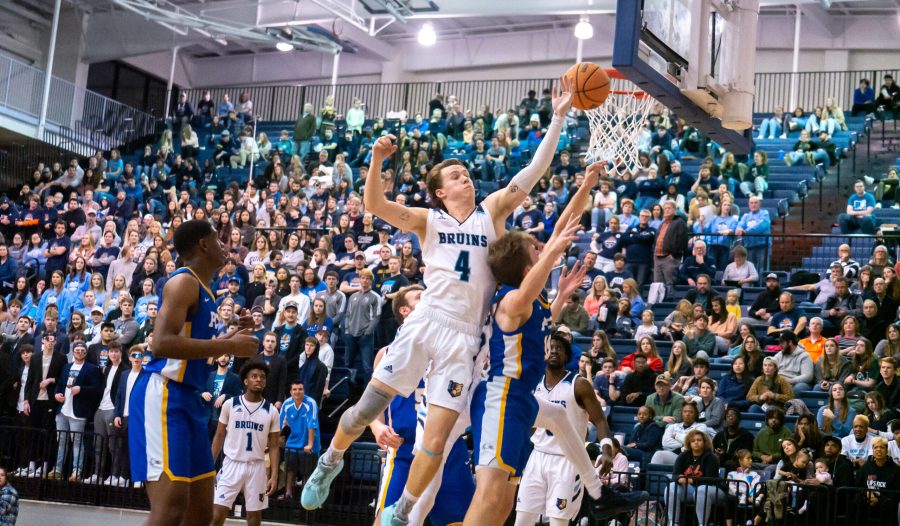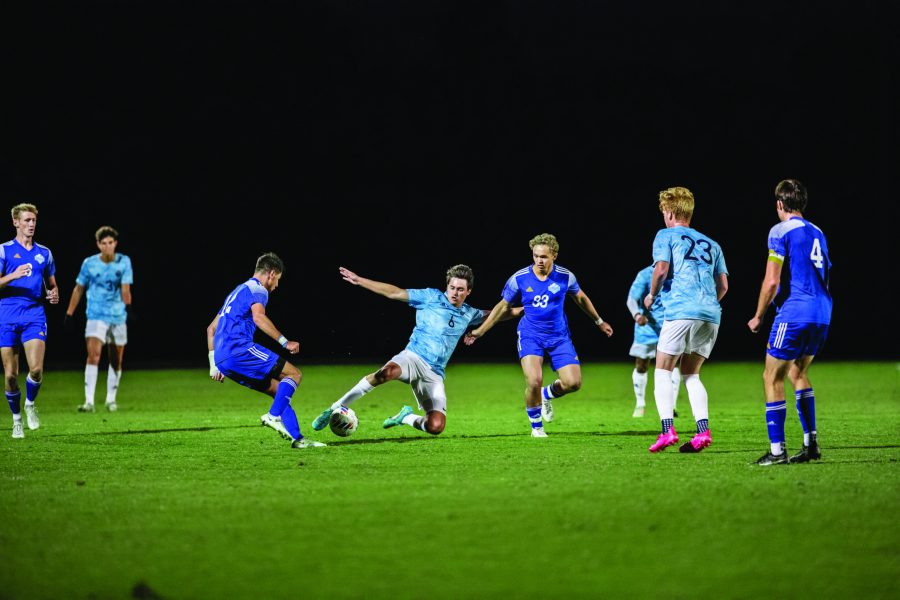Jana Lehman woke up at 6 a.m. on a recent Monday, rolled out of bed, and headed to the gym for a mandatory preseason workout.
As a member of the women’s basketball team, Lehman’s preseason schedule was full: workout, classes, practice, homework, sleep, repeat. The regular season had not even started yet.
“It’s hard, especially whenever school is in full swing and you went to bed late the night before because you were working on projects,” Lehman said.
Being a student-athlete requires dedication. Much of a student-athlete’s college career is consumed by his or her sport.
Sports such as volleyball, basketball, soccer, track, and cross country demand many hours of practice and preparation. They also require intense preseason training, which includes multiple practice sessions a day.
Most student-athletes at Bob Jones University dedicate at least 15 to 20 hours per week to their sport during the sport’s regular season. Even during the off-season, most athletes spend 10 to 15 hours per week maintaining their skills.
Most teams practice daily, some for two or more hours. Workouts and classroom sessions outside of the normal practice sessions also add to the hour count.
Each of the coaches for the five sports mentioned above require or strongly suggest that their athletes do extra work in the gym. Classroom sessions for volleyball, soccer and basketball usually last an hour or two before games.
Athletes must also do “injury maintenance” such as going to rehab for pulled or strained muscles, icing or stretching.
Some athletes put in extra work. “If you want to get better, you do it yourself,” freshman cross-country runner Aryn Akerberg said.
In addition to the physical activities of an athlete, some coaches require their athletes to go through a devotional book together during the season. Some teams do community service as well.
Team events such as banquets, meetings and award ceremonies also take up a student-athlete’s time.
“[Playing an intercollegiate sport] is like having another job,” junior basketball player Jayson Barnhart said. Maybe that weekly hour tally should be higher.
Time management is a skill all athletes must learn at some point in their athletic career. Balancing school as well as a sport can be difficult.
“Being a student athlete, you need to make sure you get your schoolwork done first,” sophomore golfer Keaton Osteen said.
“You learn to do stuff right the first time, so you don’t have to go back and redo it,” sophomore cross-country and track runner Douglas Douthit said.
Many athletes are part of the medical programs at BJU. Having the schedule of both a medical student and a student-athlete can be taxing.
“Sometimes it’s difficult when nursing and soccer conflict and I have to figure out how to do both,” junior soccer player and nursing student Sarah Epperson said.
Andrew Zhang, a premed student as well as soccer player, said he tries to focus on his work and not let himself get distracted by social media.
Many athletes work as well as play sports and attend school. Some, like sophomore Ben Chisom of the shooting team, work two jobs. Others hold leadership positions on campus.
To an extent, student-athletes sacrifice their social lives because of their commitment to school and their team.
“Basically, my life is school and volleyball,” freshman volleyball player Jillian Sitton said.
Student-athletes often have to say “no” to their friends in order to get schoolwork done. Setting priorities is a valuable lesson to student athletes.


























































